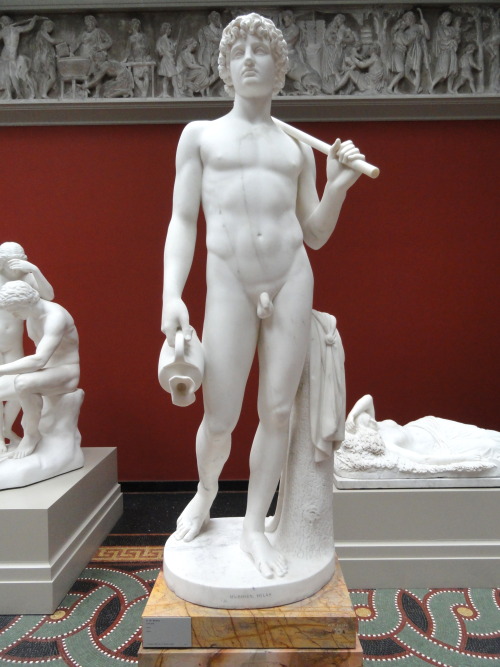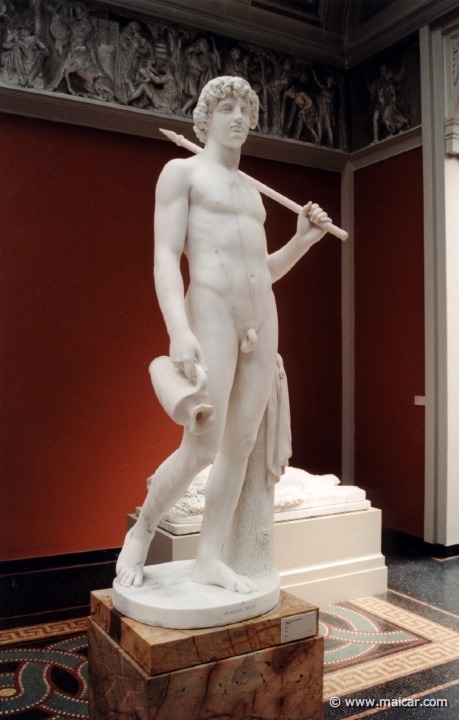#hermann wilhelm bissen
Hylas(1846)
H.W. Bissen (1798-1868)
Inspired by the tale of Hylas in the Argonautica by Apollonios Rhodios. Hylas was the son of Theiodamas, king of the Dryopes, by the nymph Menodice (Apollon. Rhod. 1.1213; Hygin. Fab. 14.271; Propert. 1.20.6); or, according to others, a son of Heracles, Euphemus, or Ceyx. (Schol. adTheocrit. 13.7; Anton. Lib. 26.) He was the favourite of Heracles, who, after having killed his father, Theiodamas, took him with him when he joined the expedition of the Argonauts. (Apollon. Rhod. 1.131; Orph. Argon. 221.) When the Argonauts landed on the coast of Mysia, Hylas went out to fetch water for Heracles; but when he came to a well, his beauty excited the love of the Naiads, who drew him down into the water, and he was never seen again. (Comp. Val. Flacc. 3.545; Orph. Argon. 637; Theocrit. 13.45.)
Heracles himself endeavoured to trace him, and called out his name, but in vain; and the voice of Hylas was heard from the bottom of the well only like a faint echo, whence some say that he was actually metamorphosed into an echo. While Heracles was engaged in seeking his favourite, the Argonauts sailed away, leaving Heracles and his companion, Polyphemus (the Argonaut), behind. He threatened to ravage the country of the Mysians unless they would find out where Hylas was, either dead or alive. (Apollon. Rhod, 1.1344.) According to the Latin Argonauticaof Valerius Flaccus, he never found Hylas because he had fallen in love with the nymphs and remained “to share their power and their love.” In Theocritus 13 Hylas was the companion and lover of Heracles.
Marble, H: 176 cm - MIN 0018
Ny Carlsberg Glyptotek, Copenhagen
Post link



